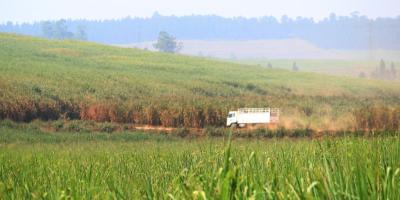Disaster response and preparedness pose unique strategic and operational challenges for business and government. The mission of the MIT Humanitarian Supply Chain Lab is to understand and improve the supply chain systems behind public services and private markets to better meet human needs during acute crisis.

Humanitarian supply chains
The Humanitarian Supply Chain Lab has a diverse portfolio of research, education, and outreach initiatives to improve emergency response during a crisis and to strengthen markets in vulnerable communities.
Disaster response in the United States
Recently, the lab expanded its research engagement with the United States Federal Emergency Management Agency (FEMA). We continued our research exploring Alternatives for FEMA Disaster-Related Housing Assistance. We are working to design and prototype a survivor-centric and cost-effective system architecture for post-disaster Direct Housing Assistance. Research included analysis of FEMA data and field work in hurricane-impacted areas to study the entire process for sourcing, manufacturing, deployment, and maintaining temporary housing units. Results identified opportunities to reduce delays and improve service for disaster survivors. Total cost analysis for temporary housing pointed to the need to explore alternate solutions. Based on these initial results, we are conducting further research on construction capacity for residential repair and construction, post-disaster labor mobility, and limitations in utilizing construction capacity after a disaster, e.g. state licensing for skilled trades.
During very active hurricane seasons of recent years, the Humanitarian Lab continued to conduct analysis and co-host calls with the American Logistics Aid Network (ALAN) and LIFT Cargo to support public and private sector supply chain decision-making. The lab received a Humanitarian Logistics Award at the 2018 Council of Supply Chain Management Professionals (CSCMP) conference in recognition of these volunteer efforts.
Agricultural supply chains in Uganda
The Humanitarian Supply Chain Lab has also continued research in Uganda on private sector supply chains that provide essential food and health products. The largest project, USAID Uganda: Market Systems Monitoring conducted in collaboration with The George Washington University (GWU), has continued to explore agricultural markets. The team developed a System Pathways Toolkit for mapping and measuring complex markets to help USAID partners assess the impact of their efforts to facilitate agribusiness success. In addition, researchers conducted direct market research in Uganda.
Learn more about these projects and our ongoing work at http://humanitarian.mit.edu.